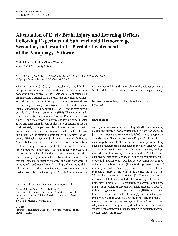摘要
Cystatin C (CysC) is a cysteine protease inhibitor and previous studies have demonstrated that increasing endogenous CysC expression has therapeutic implications on brain ischemia, Alzheimer's disease, and other neurodegenerative disorders. Our previous reports have demonstrated that the autophagy pathway was activated in the brain after experimental subarachnoid hemorrhage (SAH), and it may play a beneficial role in early brain injury (EBI). This study investigated the effects of exogenous CysC on EBI, cognitive dysfunction, and the autophagy pathway following experimental SAH. All SAH animals were subjected to injections of 0.3 ml fresh arterial, nonheparinized blood into the prechiasmatic cistern in 20 s. As a result, treatment with CysC with low and medial concentrations significantly ameliorated the degree of EBI when compared with vehicle-treated SAH rats. Microtubule-associated protein light chain-3 (LC3), a biomarker of autophagosomes, and beclin-1, a Bcl-2-interacting protein required for autophagy, were significantly increased in the cortex 48 h after SAH and were further up-regulated after CysC therapy. By ultrastructural observation, there was a marked increase in autophagosomes and autolysosomes in neurons of CysC-treated rats. Learning deficits induced by SAH were markedly alleviated after CysC treatment with medial doses. In conclusion, pre-SAH CysC administration may attenuate EBI and neurobehavioral dysfunction in this SAH model, possibly through activating autophagy pathway.
- 出版日期2014-4
- 单位苏州大学
